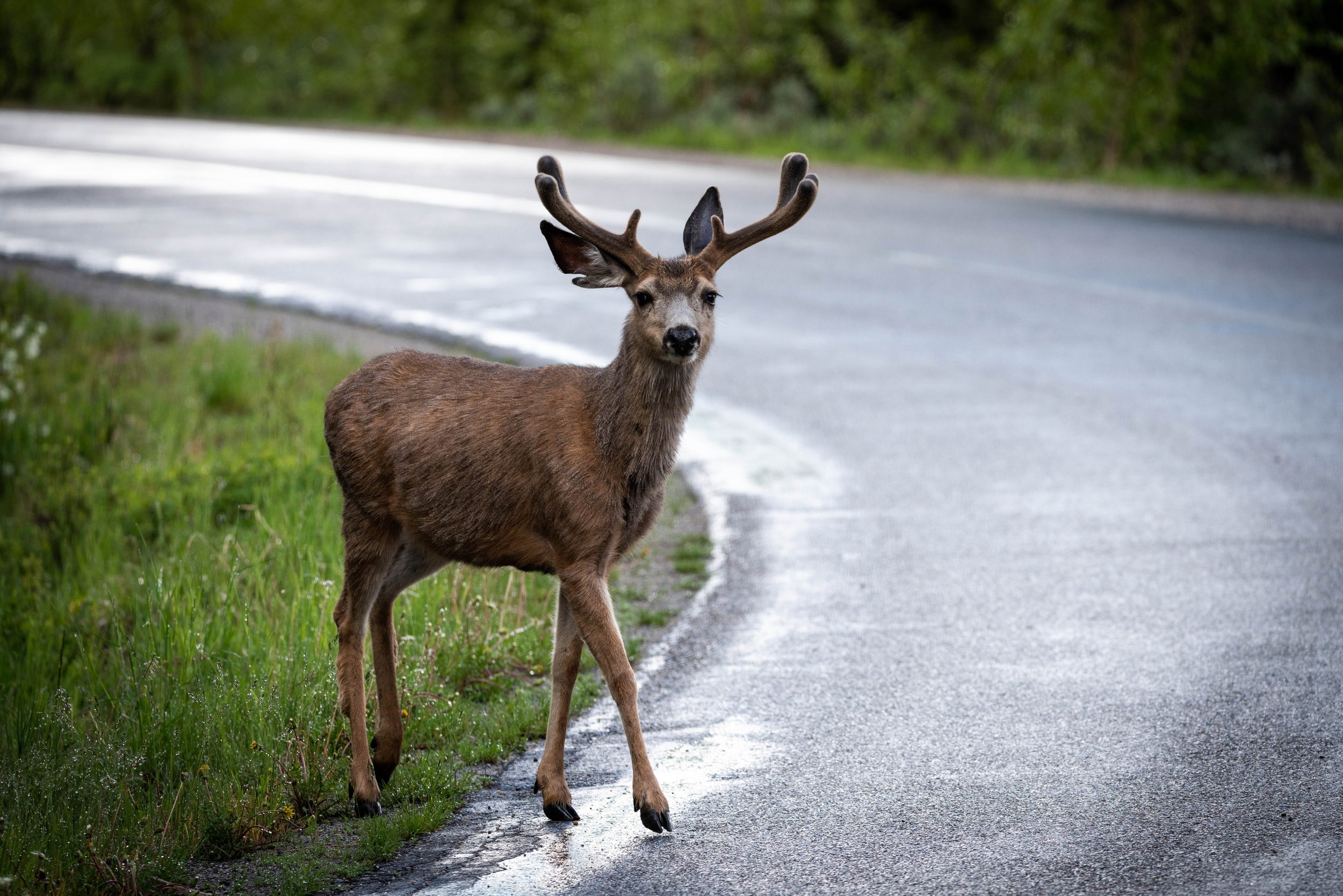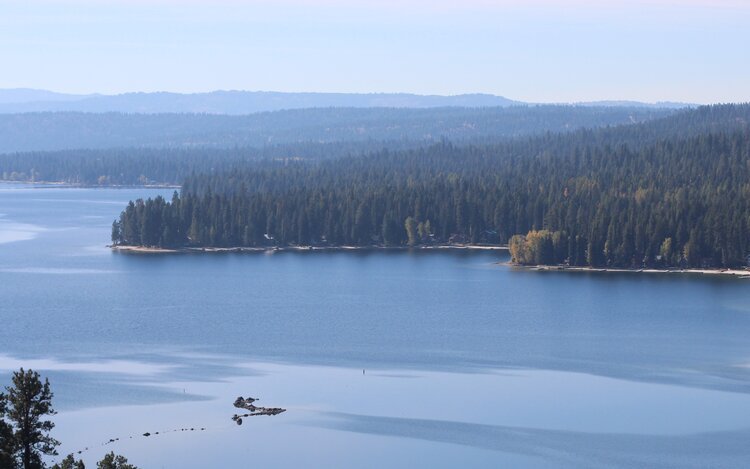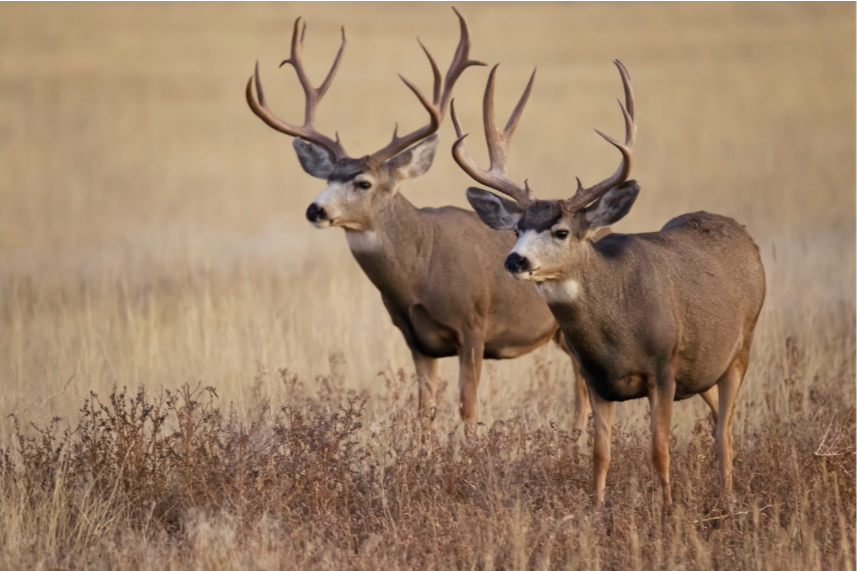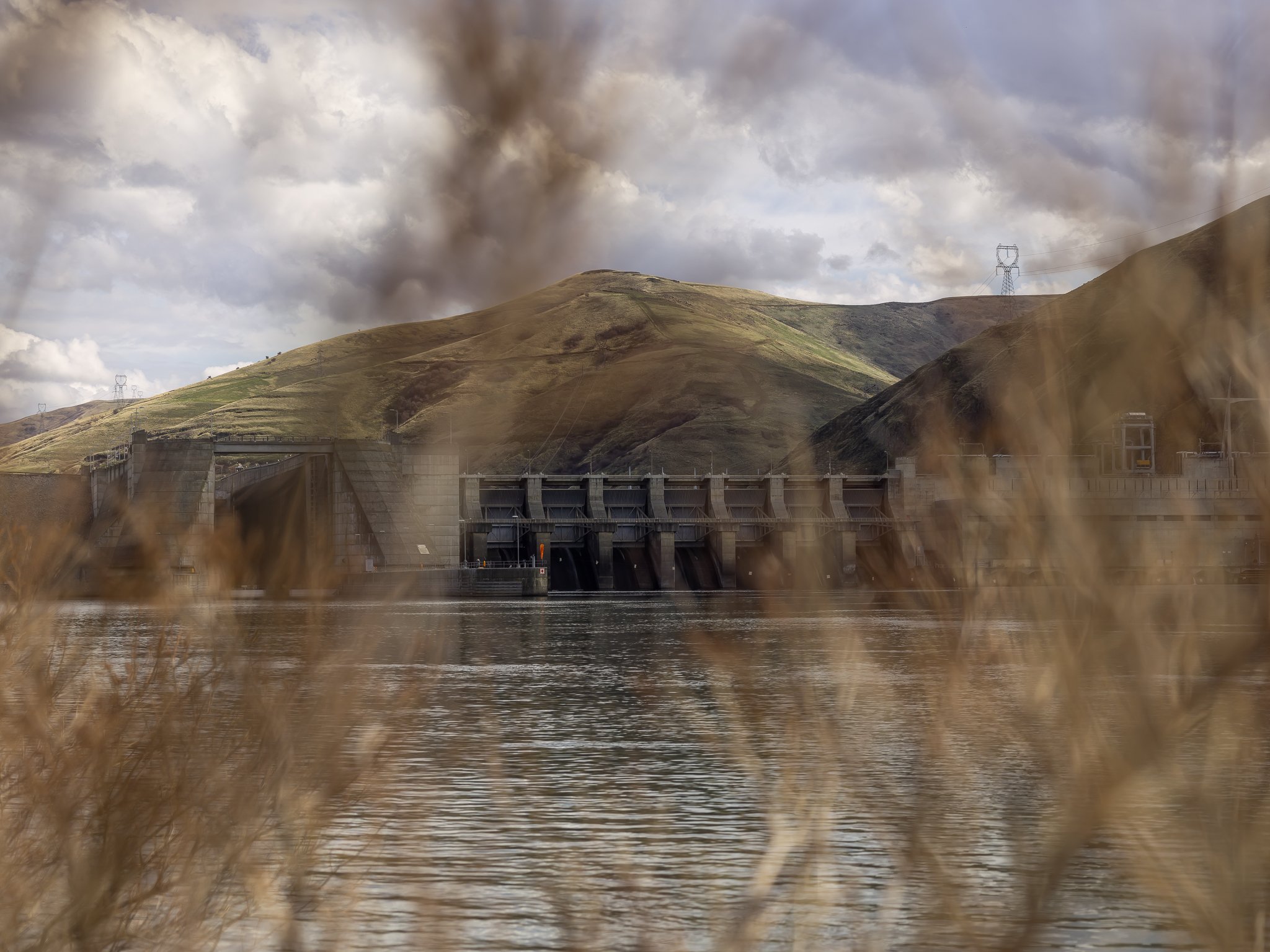REFLECTIONS: IWF Achievements In 2022
IWF cannot work for what you - all of us - love about Idaho without dedicated people like you who stay engaged and offer your advocacy as well as support. You keep IWF on the front lines fighting to ensure we have an abundance of fish, wildlife,and public lands managed to provide current and future generations the experiences we want to preserve.
We’d like to take a moment to share a few prominent campaigns and victories from 2022. All of this work is done with your support and will leave lasting legacies for Idaho’s fish and wildlife, hunting and fishing, habitat, public lands, and public land access. You might find some are new to you - often, our most impactful work never makes a single headline or trends on social media channels. Other topics are likely more familiar campaigns that have reached new milestones worth sharing.
A resounding win to maintain hunting opportunities in the Rapid River region.
The Rapid River drainage is wild country. Motorized trails rim the perimeter while non-motorized trails connect through the interior. This ruggedness insulates its bounty of wildlife from human pressure, which has created excellent big game opportunities. A proposal to open 24 miles of those interior trails to motorized use across the basin - significantly increasing the hunting and recreation pressure - would have jeopardized this unique landscape and the abundance of game. Because we believe local support is vital in resource management, IWF went to nearby communities to ask their opinion on the proposal and the response was a resounding “leave it as is” - not just from hunters, but the business and guiding communities as well. IWF organized this grassroots coalition and three years later, the USFS sided with us and locals - citing the exceptional wild (and wildlife) values of the landscape, and local support. On June 22, the New Meadows District of the USFS released their draft Record of Decision to maintain the current system of trails as is, which we expect to be upheld. This is just one example of how IWF works to bring sportsmen to the table to influence lasting outcomes.
Enhancing big game populations by translating migration science into management prescriptions.
Surprisingly, the science of big game migration is relatively young. Satellite collars can now provide real time geospatial data, allowing us to track the movement of as many animals as we can collar. The data not only shows us where animals winter, summer, and migrate, it informs us why these are their preferred landscapes. This knowledge can then be used to focus resources and inform land management policy to maintain and enhance this connectivity and therefore sustain our big game herds. IWF is funding such research and utilizing that research to effectively advocate for better big game management and hunting opportunities.
This year IWF won a competitive grant of $15,000 to pay for satellite tracking collars for elk in the Sand Creek desert. This landscape in East Idaho holds over 10,000 individual big game animals during the winter months, making it one of Idaho’s most important landscapes for big game winter survival. The collars will fill in existing data gaps for elk migration in and out of the region. This will not not only illuminate barriers to movement and other disturbances that hinder their ability to follow the nutritional green up that moves them across the landscape, it will inform what should be done on the ground to mitigate such disturbances.
For a nearby landscape IWF has completed a Ph.D. level migration assessment for the entire Salmon-Challis National Forest (SCNF) and surrounding BLM lands. The report overlays all currently documented migration routes and range for elk, mule deer, and pronghorn, with road densities and other human impacts. It also details current land management practices by the relevant public land agencies and their benefit, or hindrance, to big game connectivity. The report will be used for the upcoming SCNF Forest Plan revision process to ensure big game and vital connectivity is an elevated management priority for the next 40 years.
Keeping Payette Lakes and Lands Public.
This campaign began in 2020 when Trident, LLC proposed to privatize 28,000 acres of state land surrounding both Payette lakes- treasured for fishing, hunting, and recreation. Trident is by the wayside, but the effort to keep these lands and waters in public hands goes on. Shepherded by a coalition of conservation groups and IWF, the USFS is working to trade these lands with the State of Idaho, which will preserve 95% of the landscape. For the remaining parcels we are working with state agencies to find unique ways to fulfill their constitutional mandate to maximize long term revenue while preserving public access and this quality habitat.
Chronic Wasting Disease (CWD) in Idaho: federal bill to mitigate impacts on the finish line.
An always-fatal disease in elk, deer, and moose (cervids) caused by the spread of contagious prions (proteins), CWD has unfortunately come to Idaho. Soon after its detection IWF rallied meetings with our congressional delegation to educate them on the threat and need for action. After this meeting Rep. Simpson cosponsored the CWD Research and Management Act and Rep. Fulcher voted for its passage through the House. Sens. Crapo and Risch soon became co-sponsors in the Senate. The bill, which will provide funding for CWD research and state-led efforts to mitigate its impacts, teeters on the edge of passage in the Senate and then on to the President’s desk.Getting all four Idaho delegates on board is another testament to IWF’s effectiveness.
Advancing the fight to save Idaho’s salmon and steelhead.
IWF has been the cutting edge of this campaign for decades, yet annual fluctuations of returns continue trending toward extinction. We’ve successfully made incremental changes like amending the Marine Mammal Protection Act to allow for the culling of artificially inflated sea lion populations, funding habitat restoration in the upper Clearwater/Salmon Rivers, and pushing more spill over the lower Snake River dams (LSRDs). But, the big killer (over 60%) of Idaho’s fish are the LSRDs and the science is clear that no solutions are sufficient without LSRD breach. All along we’ve asked the question: if breach is the single best thing we can do for our fish, what infrastructure would replace the benefits the LSRDs currently provide? The good news is we can replace those services of power generation/storage and commodity transport. We continue to work towards solutions that bring back our fish while ensuring no communities or industries are left behind.
Expanding grassroots involvement to grow conservation advocacy and guide resource management.
IWF has played a leading role in the founding of a new grassroots coalition to grow the “big tent” of sporting and wildlife interests, dubbed the Idaho Sporting and Wildlife Partnership. The new Partnership will bring in relevant sportsman organizations (like national organizations with bylaws that prevent them from joining IWF as an affiliate) to take part in influencing legislation, public land management, state agency issues, and more.
At the same time, IWF has grown in its Conservation Ambassador program. This is a robust effort that gets individuals involved in resource management and enhancement of their local wildlife and wildland resources, while providing coaching on how to become a better advocate and organizer for issues they care about.
There is so much more to tell you about, like our leadership on public land collaboratives in every corner of the state, our work on the looming passage of the Recovering America’s Wildlife Act (which will double Idaho Fish and Game’s wildlife budget), our veteran hunt program, protecting public access, and so much more.
Ultimately, we can not do any of it without the commitment of people like you who understand the importance of protecting what we love.
We need your support so we can keep turning out, speaking up, and fighting for your wildlife, habitat, and access.
To help us continue and expand our growing breadth of work, we are asking you to commit to wildlife and wild places the same way Idaho gives to us, all year around. By committing to or by renewing your financial support for IWF - with a one-time or monthly recurring donation - we can keep turning out, speaking up, and fighting for your wildlife, habitat, and access.






